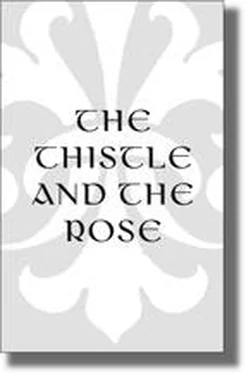Jean Plaidy - To Hold the Crown - The Story of King Henry VII and Elizabeth of York
Здесь есть возможность читать онлайн «Jean Plaidy - To Hold the Crown - The Story of King Henry VII and Elizabeth of York» весь текст электронной книги совершенно бесплатно (целиком полную версию без сокращений). В некоторых случаях можно слушать аудио, скачать через торрент в формате fb2 и присутствует краткое содержание. Жанр: Старинная литература, на русском языке. Описание произведения, (предисловие) а так же отзывы посетителей доступны на портале библиотеки ЛибКат.
- Название:To Hold the Crown: The Story of King Henry VII and Elizabeth of York
- Автор:
- Жанр:
- Год:неизвестен
- ISBN:нет данных
- Рейтинг книги:5 / 5. Голосов: 1
-
Избранное:Добавить в избранное
- Отзывы:
-
Ваша оценка:
- 100
- 1
- 2
- 3
- 4
- 5
To Hold the Crown: The Story of King Henry VII and Elizabeth of York: краткое содержание, описание и аннотация
Предлагаем к чтению аннотацию, описание, краткое содержание или предисловие (зависит от того, что написал сам автор книги «To Hold the Crown: The Story of King Henry VII and Elizabeth of York»). Если вы не нашли необходимую информацию о книге — напишите в комментариях, мы постараемся отыскать её.
To Hold the Crown: The Story of King Henry VII and Elizabeth of York — читать онлайн бесплатно полную книгу (весь текст) целиком
Ниже представлен текст книги, разбитый по страницам. Система сохранения места последней прочитанной страницы, позволяет с удобством читать онлайн бесплатно книгу «To Hold the Crown: The Story of King Henry VII and Elizabeth of York», без необходимости каждый раз заново искать на чём Вы остановились. Поставьте закладку, и сможете в любой момент перейти на страницу, на которой закончили чтение.
Интервал:
Закладка:
Now there was this matter of Cecilia’s marriage.
He came to her smiling. He would lead her to the bed and they would make further attempts to get another child. It was the ritual when they were together. She believed that Henry had no greater liking for the act than she had for they were both aware of a certain relief when it was over, though it brought with it a sense of achievement which they hoped would be rewarded and a certain respite gained. Sometimes she thought of her father and all his mistresses. How different he must have been!
“Henry,” she said, “there is something I have to tell you. I hope it will not anger you.”
He was alarmed. She sensed that rather than saw it. He never showed his feelings but she was aware that she had made him uneasy.
She said quickly: “It is my sister, Cecilia. I am afraid she has acted rather foolishly.”
“How so?” he asked.
“She has married.”
He looked puzzled. But she could not tell whether he was angry or not.
She said quickly: “To Lord Wells.”
He remained silent for a few seconds. Cecilia married to Wells! He was not at all put out. He had been watchful of Cecilia. In his mind had been the thought that he might have had to put her in Elizabeth’s place. He was a man who calculated all eventualities. Life had made that necessary in the past and once a habit was formed with him, it generally continued. Moreover it was as necessary now as it had ever been. He had visualized Elizabeth’s dying in childbed as so many women did and perhaps the baby with her. Then there would have been no alternative but marriage with Elizabeth’s sister Cecilia. Cecilia was the one. The others were too young. So therefore he had kept Cecilia in the background. He had made sure that she should not be offered on the marriage market. He had looked upon her as a reserve. And now . . . she had married John Wells.
Wells came of a family which had always been loyal to him. He liked John Wells.
“You do not speak,” said Elizabeth, watching him fearfully.
“I am taken by surprise.”
“Of course it was very wrong of them.”
“But natural I suppose. We have been inclined to think of Cecilia as a child. She has shown us that she is not that.”
“Oh Henry . . . are you . . . ?”
He said: “What’s done is done.”
He was thinking: I am safe now. I have Arthur. As long as I have an heir who is half York and half Lancaster all is well. It is a pity Arthur is not more robust. However, it is no use thinking of Cecilia now. There is Anne . . . Very young as yet. But Elizabeth is still here . . . and strong. . . .
He had always kept a firm control on his emotions and that habit never failed him. Always he liked time to think, what is best for Henry Tudor? what is safe for Henry Tudor? while his quick shrewd mind worked out the answer for him. He believed that he had come as far as he had because of this.
He said now: “Why are you trembling, Elizabeth? You must not be afraid. You are not afraid of me, are you?”
She lowered her eyes. She could not tell a blatant lie.
“You must not be. You did right to tell me. I should not have liked to hear this from another source. But it is done. I trust John Wells. He has always been a good servant to us. Perhaps I shall tell him that he has been a little hasty. You may like to tell your sister that. Well, then let us wish them happiness and a fruitful marriage, eh . . . ?”
“You are so good,” she said with tears in her eyes. “I shall never forget that scullion boy . . . and now Cecilia.”
“Lord and Lady Wells would not relish being compared with Lambert Simnel, my dear. Now . . . let us to bed.”
The Death of
a Queen
 n her nunnery at Bermondsey Elizabeth Woodville heard of her daughter Cecilia’s marriage and that the King had accepted it with a philosophical shrug of the shoulders.
n her nunnery at Bermondsey Elizabeth Woodville heard of her daughter Cecilia’s marriage and that the King had accepted it with a philosophical shrug of the shoulders.
This meant, Elizabeth knew, that he felt secure now Arthur was progressing well. Oh why should she be kept from her grandchild! Why should she be kept here? What an end to a career of such brilliance! But looking back there had been many times like this when she had had to remain shut away from the world as the only way to preserve her life. She was tired of it. If the Queen could persuade the King to accept Cecilia’s marriage why could she not bring her mother back to Court?
The answer was simple. The first did not affect the King one whit; the second might. Henry Tudor will always take care of Henry Tudor, thought Elizabeth bitterly.
Every day she expected to hear news of Scotland. That James would agree she had no doubt. She had at one time been reckoned to be the most beautiful woman in England and beauty such as hers did not disappear; it became a little faded—a little subdued sounded better—but she was still a very beautiful woman and with the right clothes and environment could toss aside the years as though they were tennis balls.
To Scotland! She had heard the climate was dour and the manners of the people not the most gracious in the world, but it would be better than remaining here, shut away from the Court, living in a kind of disgrace and with the knowledge that the King would always be suspicious of her if she went back to Court, and she could be sure that mother of his would never be far away.
Scotland was the best she could hope for, and why should she not make a success of her new role? She was not young, but nor was the King of Scotland. She calculated that he would be just under forty. Mature, very glad no doubt to have for his wife a beautiful woman who had been a Queen of England.
She would try to forget her family here. Elizabeth who had become the Queen; Cecilia who had married Lord Wells and now, she heard, had retired with him to the country; Anne who was just thirteen and who would soon be having a husband found for her; Catherine who was but eight years old and Bridget who was a year younger and destined for a nunnery. All girls left to her and two little boys lost forever. No, she must stop herself trying to solve that mystery. It would bring no good. All this she must forget. She must put the past behind her. She must think of the new life in Scotland.
It would be entirely new . . . a new world to conquer. Her spirits were lifted considerably. She felt almost as she had that day when she, the desperately impoverished widow, mother of two boys by the dead John Grey, had gone out to Whittlebury Forest and made a name for herself in history.
Now . . . here was another chance. Queen of Scotland. The more she thought of the past, the more she considered her prospects for the future, the more she felt that her salvation was in Scotland.
She read of Scotland; she studied the history of Scotland; and what a tumultuous history it had! The Scots seemed to be more warlike than the English and one noble house was for ever at odds with another.
It would be primitive of course. The Scottish castles were as drafty as the English ones and there was a colder climate with which to contend. She would need fur cloaks and rugs; she visualized great fires roaring in the rooms of the castles; she could bring a more gracious way of life to that unruly race.
Each day she became more and more eager to leave. She knew that the delay in receiving an answer from James was probably due to the fact that he was now engaged in a war.
She would try to teach them that diplomacy worked so much more effectively than bloodshed. She would introduce a little culture into the Court. She would have friends visiting her from England.
One afternoon a visitor called at the nunnery. She was wrapped in a concealing cloak and she had two ladies with her. The Queen Mother was called down to greet the visitors and when one of them stepped forward and threw back her hood, she saw that it was no other than her daughter, the Queen.
Читать дальшеИнтервал:
Закладка:
Похожие книги на «To Hold the Crown: The Story of King Henry VII and Elizabeth of York»
Представляем Вашему вниманию похожие книги на «To Hold the Crown: The Story of King Henry VII and Elizabeth of York» списком для выбора. Мы отобрали схожую по названию и смыслу литературу в надежде предоставить читателям больше вариантов отыскать новые, интересные, ещё непрочитанные произведения.
Обсуждение, отзывы о книге «To Hold the Crown: The Story of King Henry VII and Elizabeth of York» и просто собственные мнения читателей. Оставьте ваши комментарии, напишите, что Вы думаете о произведении, его смысле или главных героях. Укажите что конкретно понравилось, а что нет, и почему Вы так считаете.












